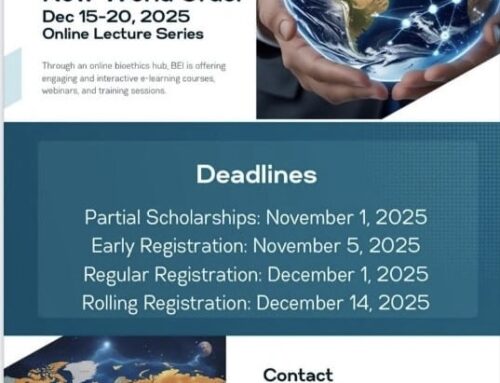As military technologies evolve toward enhanced and cyborg soldiers, ethical questions surrounding super-soldiers have become more urgent. This talk explores the development of performance-enhancing interventions in soldiers—ranging from stimulants and resilience boosters to brain-computer interfaces—and evaluates their use through the lens of just war theory and consequentialist ethics. Arguing that the legitimacy of supersoldier technologies depends less on their capabilities than on the political authority deploying them, I examine how consent, reversibility, proportionality, and restraint must frame their application. Ultimately, I propose that the most defensible future for military enhancement lies within a system of transnational governance, where lethal force is exercised in defense of human rights under democratic global authority.
The US and China are reportedly investing heavily in military enhancement technologies, including the potential development of super soldiers. Here’s what we know so far:
China’s Efforts:
• Genetic Enhancements: China has been accused of conducting human testing to develop soldiers with “biologically enhanced capabilities”. US Director of National Intelligence John Ratcliffe claimed that China has been working on creating super soldiers through genetic engineering and biotechnology.
• AI-Powered Super Soldiers: A US intelligence report suggests that China may be developing gene-edited super soldiers infused with AI capabilities, posing a significant threat to global security and stability.
US Efforts:
• Research and Development: The US Pentagon has been researching soldier enhancements, with a focus on biotechnology, AI, and neuroscience. In 2011, the US Pentagon spent around $400 million per year on researching soldier enhancements.
• Biotechnology Advancements: The US National Security Commission on Emerging Biotechnology warned that China is likely working on genetically engineered super soldiers, and the US needs to invest in its own biotech capabilities to stay competitive ³ ¹.
Concerns and Implications:
• Global Security: The development of super soldiers could redefine military power dynamics and pose significant challenges to global security.
• Ethics and Regulation: The use of biotechnology and AI in warfare raises concerns about ethics, safety, and regulation.
• International Cooperation: The US and other countries may need to develop new frameworks for regulating the development and use of super soldier technologies.
James J. Hughes, PhD serves as the Executive Director of the Institute for Ethics and Emerging Technologies and as Associate Provost at the University of Massachusetts Boston. He is the author of Citizen Cyborg. He holds a doctorate in sociology from the University of Chicago, where he also taught bioethics at the MacLean Center for Clinical Medical Ethics. Dr. Hughes is the author of Citizen Cyborg and co-editor of Surviving the Machine Age.






